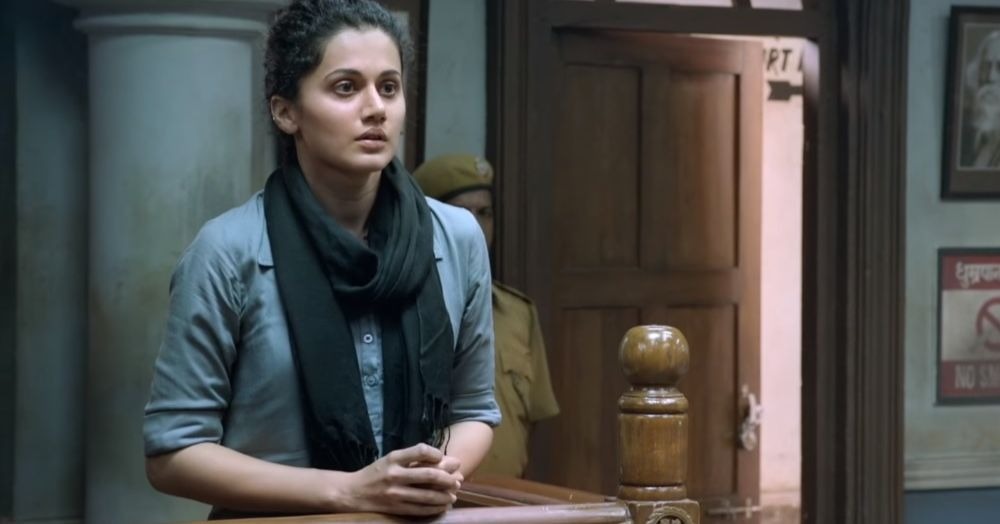It’s that wonderful time of the year again when women find themselves bombarded with glossy pink pamphlets offering 50% off on shoes, and the glorious ‘buy a drink and get the other two free!’ offers scream at us through pub windows. Beautiful greeting cards will float around, weaving poetry and calling us goddesses, only to be trampled on the next day, as yet another heinous crime is committed against another one of us. Not on our watch. You are a strong, independent woman who knows her place in the world, and it is about time you take note of the basic constitutional rights in your favour.
Since International Women’s Day is finally upon us, we bring you a list of the fundamental rights that are granted to every woman in India, that you may not know about. These rights are granted by the constitution and as a citizen, you should definitely be aware of them so that the next time you require legal assistance from the authorities, you know exactly what to do.
1. A woman cannot be arrested after sunset and before sunrise
A Supreme Court ruling states that no woman can be arrested before sunrise or after sunset (more specifically after 6PM and before 6AM) in order to stop them from getting harassed in the wee hours. Even if there is a woman constable accompanying the officers, the police can’t arrest a woman at night.
In case the woman has committed a serious crime, the police require to get it in writing from the magistrate explaining why the arrest is necessary during the night.

2. The right to an untimely and virtual registration of complaints
According to the guidelines issued by the Delhi Police, a woman has the privilege of lodging a complaint via e-mail or registered post. If a woman can’t go to the police station, for any reason whatsoever, she can send a written complaint through an email or registered post addressed to a senior police officer of the level of Deputy Commissioner or Commissioner of Police.
Even if the woman postpones going to the police to lodge a complaint, the Police cannot say no to registering the complaint, no matter how delayed the instance.
3. A live-in relationship isn’t illegal!
Yep, you read that right. If two consenting adults choose to opt for a live-in relationship, it isn’t considered an illegal living arrangement. Adding to that, if certain conditions are met, including (but not limited to) domestic and financial arrangements, sexual relationship, accountable for responsibilities etc, the relationship between the couple can most certainly be equated to that of a ‘marriage’.
The Supreme Court has also stated that if a man and a woman ”lived like husband and wife” for a long period and had children, the judiciary would presume that the two were married.
According to the Domestic Violence Act 2005 in India, a woman having “a relationship in the nature of marriage” with a man, can go to court if abused. Since this covers economic abuse, it affords women protection in case of a violation of their financial rights.

4. Hugging or kissing in public is not a crime
This is one right that you may need to tread lightly. Even though it isn’t strictly mentioned in the law that either hugging or kissing in public is a crime, Section 294 of Indian Penal Code still states ‘obscenity in public’ as a criminal offense.
5. Right to privacy while registering a complaint
If a woman has been raped and wishes to have her statement recorded, she has a right to do so in private, in front of the magistrate without being overheard by anyone else. She also holds the freedom to record her statement with a lady constable or a police officer in person. According to Section 164 of the Criminal Procedure Code, the police has to grant privacy to the victim without stressing her in front of a larger gathering of people.

6. The Zero FIR Ruling
It’s not an uncommon occurrence for the police to refuse to register the victim’s complaint, and send her to another police station to steer clear of the responsibility of reporting an FIR right then. In such cases, she has the right to lodge an FIR at any police station in the city under the Zero FIR ruling.
So the next time the cop in charge tells you this doesn’t “come under his area”, you know what to do.
7. The right to legal aid
There have been instances where a woman has gone to the police station to have her statement recorded without an accompanied lawyer, and she has been humiliated, misquoted, or ignored. As a woman, it’s crucial you know that you have the right to get legal aid and you can demand for the same.
According to a Delhi High Court ruling, whenever a rape is reported, the senior house officer has to bring this to the notice of the Delhi Legal Services Authority, and the legal body then has to arrange for a lawyer for the victim.

8. A woman can be escorted to the police station ONLY by women officers
Which means you definitely have the right to say no to being escorted by male police officers if they do attempt to do the same. And if in case the incident occurs at night, even a female police officer cannot arrest you based on the 6PM to 6AM rule mentioned earlier.
You run the world, girls, and it’s about time you go seize the day!
Images: Shutterstock



